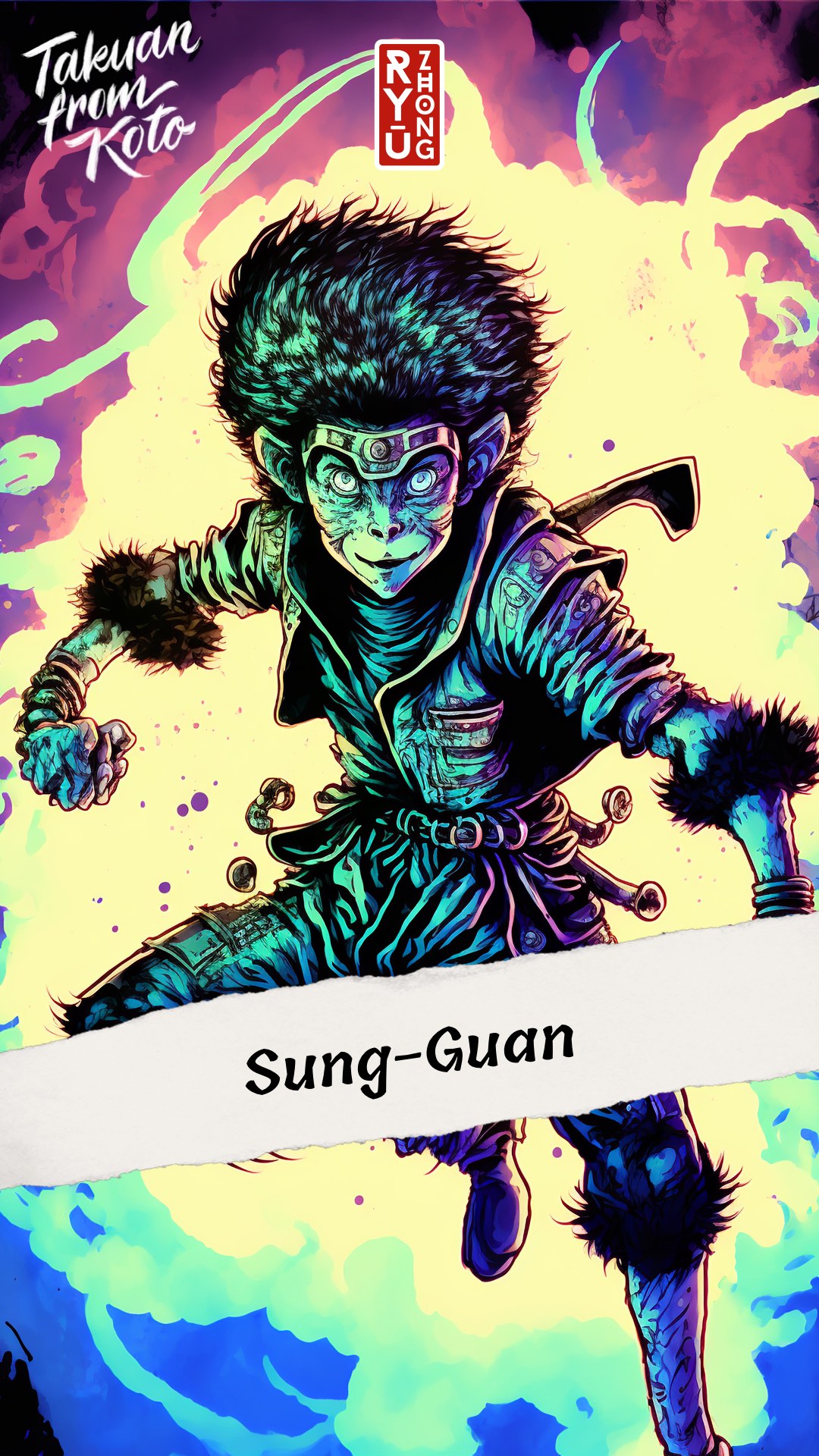
¶ Sung-Guan
See also: Hatsukoi, Takuan, marten Ta-Guan.
¶ The Tail-bound Victim of the Sorcerer
Sung-Guan makes an appearance in the pages of ‘Takuan from Koto’ only towards the end of the second book, ‘Hunters of Weredemons.’ Let’s not discuss how it happened, but Sung-Guan became the victim of an unlucky sorcerer named Bricabrac, who, perhaps for the only time, found himself blessed with good fortune.
As a result, Sung-Guan acquired a long and clingy tail, as well as golden fur, resembling a mountain monkey. Along with the tail, Sung-Guan also gained the boundless energy of the celestial marten Ta-Guan, which, of course, inhabited the one who later received the name Sung-Guan.
¶ The Disciple of the Temple Monk
Sung-Guan received his pupil name from a temple monk who traveled through Chinayindu on a mission for the Goddess of the West. We are familiar with the name of this monk: he was called Soliang.
Sung-Guan willingly placed himself in the hands of the monk, who promptly took advantage of the situation. With the help of sacred kamisuttas, Soliang tamed the wild nature of the marten that had settled in Sung-Guan’s mind, and he bestowed upon Sung-Guan a disciple’s name.
¶ Quotes
Caught unaware, Takuan gaped, and the magicks went into his mouth, penetrating him from the upper lip to the deepest intestine. The imp was immediately thrown out and disappeared as the smoke cleared up; the golden headband did not allow the imp to possess Takuan.
However, the magicks in the headband knew nothing about the true nature of the celestial marten. Therefore, the marten Ta-Guan remained inside. Taking advantage of Takuan’s confusion, she snuggled with comfort in the celestial shed that Takuan had built in his mind during postulancy.
Zaemon, on behalf of whom Takuan spoke, was standing below and curiously examining a strange figure that resembled a mountain monkey more than anything else. The monkey was covered with short golden red hair and dressed in a light jacket and trousers, from which protruded a tail that shimmered with gold. The magical monkey did not look like an ordinary weredemon, though it behaved in a similar way; it stood and boasted, arranging all sorts of faces.
“The word ‘Ta’ means ‘king’, as is known to everyone,” said the monk. “You don’t look like a king at all. What are your relatives called?”
Takuan told him his father’s name: “Sung.”
“I’ll call you Sung-Guan then,” the monk said. “For as long as you are in my service, it is your pupillary name.”